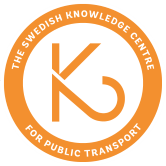Background
The COVID-19 pandemic has rapidly led to some of the most revolutionary changes in private and professional life around the world. While the extent and duration of these changes are not certain, they have already had a great impact on travel patterns. This is also the case in Sweden, despite its relatively liberal approach to restrictions, which relies on voluntary measures such as social distancing and self-monitoring for symptoms.
Methodology
Due to the pandemic, a shift to telework and virtual meetings is being tested in what can be seen as a large-scale experiment, and the knowledge and experience from that experiment may have lasting effects on everyday life. This study seeks to analyse the effects of government and public agencies’ recommendations on meeting and travel behaviour on employees at five public agencies in Sweden.
Results
The results indicate that the public authorities surveyed were well prepared and had a ‘backup collaboration solution’, at least technically, to make a rapid behavioural shift when travel was not an option. Though the Swedish government’s and Public Health Authority’s strong recommendations have led to the most dramatic reductions in work-related travel in modern times, the operations in Swedish agencies continue to function, along with the employees’ communications and collaborations. These results indicate that there is great potential for digital tools to influence if and how we commute and make business trips. The COVID-19 pandemic has shown that such tools can make the impossible possible.
